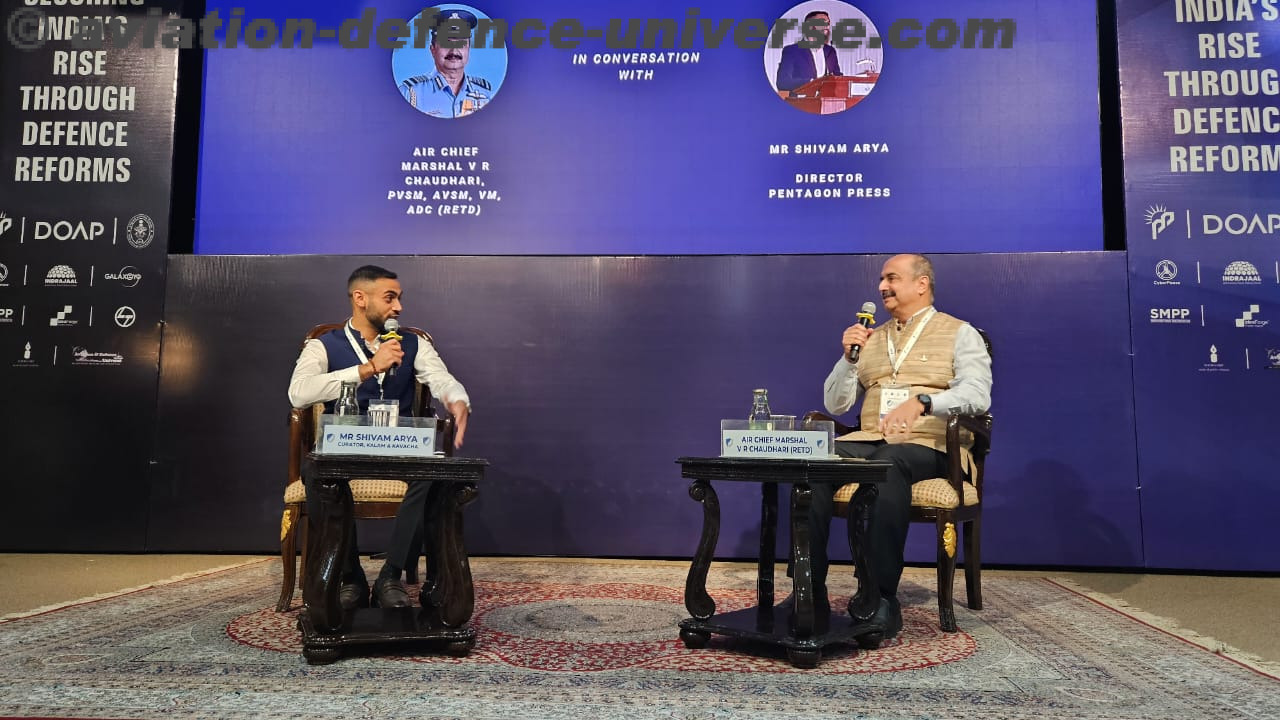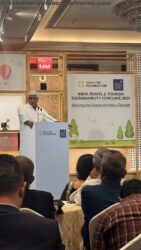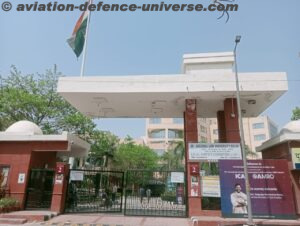New Delhi. 16 January 2024. The year 2024 dawned to the world set to see 12 months of elections, with about 60 countries to go to polls. 27 countries in the European Union, 18 in Africa, 17 in Asia, 5 in North America, 4 in Oceania and 2 in South America will see the ballot taking the forefront to change the political scenario world wide. The three largest democracies United States, India and Indonesia are all in their election year and more than two billion people would cast their votes. In India general election should be scheduled for April/May 2024 while on 5 November U.S. citizens will elect their 60th president. Both the warring nations Russia & Ukraine and Indian origin led U.K. too will give their citizens right to elect their new governments. India’s neighbour Bangladesh has already voted on 7th January and the incumbent Prime Minister Sheikh Hasina’s party won the elections.
In international amphitheatre the west including United States appears to be losing ground. China which is trying hard to leave USA behind and emerge as a super power claims that West is a spent force and mentions that in 2024 new power centres would emerge. The analyst assert that mid-level countries would emerge and the world instead of bipolar would become multi-polar. Recently Baghdad reacted sharply against U.S. strike in Iraq. Iraqi Prime Minister Mohammed Shia al-Sudani stated that he would discuss about the removal of U.S. forces from Iraq.
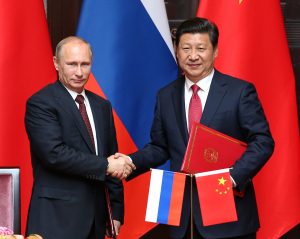
On 24 February 2022 a “boundless friendship” declaration was issued by China and Russia. Moscow and Beijing have a joined strategy of foiling western including U.S. supremacy. Riyadh has chosen to cooperate with Moscow to manage OPEC+ oil producing countries. The mid-level countries are developing rapidly, and India is emerging as an economic powerhouse. It has become the fifth biggest economy in the world and as it is the fastest growing economy it is expected that in 2024 India would become the fourth largest economy and within few years it would become the third biggest economy after U.S. & China.
Taiwan’s presidential and parliamentary elections were held on 13 January. The election results would be significant for the world including China. According to U.S. sources China has planned to attack Taiwan in 2027. If Xi Jinping attacks Taiwan and U.S. and other western countries help Taipei as they helped Ukraine China would be considerably weakened. A weak China would be good for the world, India and other countries which are continuously threatened by aggressive China.
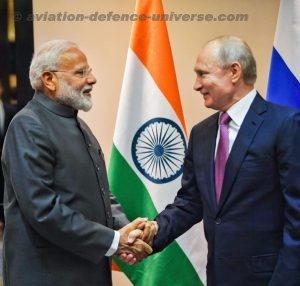
Putin President of India’s tested friend Russia would continue to be the president for few more years thereby making the chances of end of Russia -Ukraine war remote. Delhi bought Russian oil in rupees which helped India and is able to duck breach of sanctions imposed by Western countries. India’s strong and powerful Prime Minister Modi is expected to win 2024 elections hence Delhi would continue to progress. India has successfully lessened its current account deficit (CAD) and enhanced its forex reserves which is more than $600 billion.
Surprisingly Global Times of China has appreciated the progress India is making from last 10 years. It accepts that India is a major power and rapid changes in it’s internal and external strategies pose a challenge to the world. The world should formulate its policies considering that now India is more assertive and powerful. India has emerged as a regional power and has been strengthening itself, hence China which considers India as its potential rival tries to encircle India. China has deep pockets hence India has to counter it diplomatically and on the basis of its old cultural, religious, and social relations.
On 7 January Bangladesh which is an important India’s neighbour under gone general elections. In the elections Prime Minister Sheikh Hasina’s Awami League won with thumping majority. Sheikh Hasina is reliable friend of India, and she stopped the nefarious activities of Inter Services Intelligence (ISI) of Pakistan from Bangladeshi soil. ISI was running training camps of terrorists especially of Northeastern States of India in Bangladesh. The Grand Alliance led by Prime Minister Sheikh Hasina of Awami Leaue developed infrastructure in the country and also achieved economic growth. The opposition parties instead of discussing substantive issues worked only on a single point that elections should be held under a care taker government. However, in 2006 the caretaker government imprisoned the political leaders of ruling as well as of opposition parties and prolonged its stay. In 2011 under 15th Constitutional Amendment role of caretaker government was finished and the election commission was strengthened. Therefore, the demand of opposition parties of caretaker government was against the constitution. Free and fair elections were held and there were international observers too. India supported the conduct of free and fair elections.
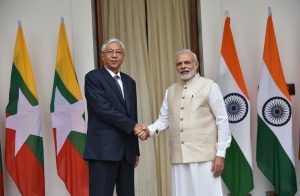
Myanmar is not only geopolitically important but is the only Southeast Asian country which shares 1,624 Kilometres land and 725 KMs maritime boundary in the Bay of Bengal with India. Mizoram, Manipur, Nagaland, and Arunachal Pradesh share borders with Myanmar. The border is not only porous but underdeveloped, insurgency prone and poorly guarded. Drug peddlers, arms traffickers and insurgents are active on the borders. Although India has cordial relations with Myanmar army, but the situation is changing as the rebels are gaining ground and “Three Brotherhood Alliance (3 BHA) is occupying more and more areas. The rebels have overrun more than 135 military positions under “Operation 1027”. Myanmar’s military has lost control on China Myanmar border as well as in some areas on India Myanmar border. Both the countries are facing influx of refugees. Thousands of Myanmar nationals including soldiers are taking refuge in Manipur state which has law and order problem. India is watching the situation.
Nepal is another important neighbour of India, and both countries have religious, cultural, historical, geographic, and economic relations. Both countries have an open border and have ‘Roti-Beti ka Rishta’ which means alliance of sharing food and giving daughters in holy matrimony from one side to the other. India-Nepal Treaty of Peace & Friendship of 1950 is an important treaty between both the countries. Nepal is important from security angle also. Nepal shares border with five Indian states namely Uttarakhand, Uttar Pradesh, West Bengal, Sikkim, and Bihar. Rivers originating from Nepal are important for India. In 2022, Nepal exported electricity worth Rs.10.38 billion to India till mid-November 2022. India’s Foreign Minister Jaishankar also paid a two-day visit to Nepal and co-chaired with Nepalese Foreign Minister, the 7th India-Nepal Joint Commission meeting. Several agreements were also signed between both the countries. Both countries have very cordial relations however China instigates Nepal to issue anti- India statements. In past Kathmandu claimed some areas of India also.
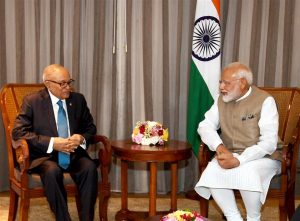
The island nation Maldives is India’s important maritime neighbour in the Indian Ocean Region (IOR). It is important for India’s initiative like SAGAR (Security and Growth for all in the region) as well as India’s Neighbourhood First Policy. However, the relations were strained when its three ministers criticised Prime Minister Modi when he visited Lakshadweep and shared the photographs with the intent of promoting it as a tourist destination. Maldivian government has suspended these ministers and President of the country is also planning to visit India. The relations between both the countries are in troubled waters as the present President Mohamed Muizzu is pro-China and led “India out campaign”. After taking over, Muizzu also demanded that India should withdraw its troops from Maldives. Recently Muizzu visited China for getting assistance from Beijing. However, Maldives should learn lessons from the episode when Sri Lanka took financial assistance from China and faced economic disaster.
India and Sri Lanka have close relationship at highest political level, the trade between both the countries is increasing. Both the countries have close cooperation in different fields including education, culture, defence, development of infrastructure. There is far-reaching understanding between both the countries on major international issues. India helped Sri Lanka when it was passing through an economic upheaval. Both countries have very close and cordial relations.
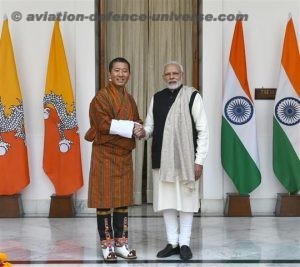
Bhutan and India have shared a “special relationship” for centuries. Bhutan is the biggest beneficiary of India’s foreign aid and Delhi has influence on Bhutan’s foreign policy as well as on defence and commerce. However, China instigates Bhutan to establish diplomatic relations and settle the border issue independently without India. Recently Bhutanese Foreign Minister Tandi Dorji visited China and there Chinese Foreign Minister insisted for the restoration of diplomatic relations between both the countries. At present China and Bhutan do not have diplomatic relations but both countries exchange visits of officials.
India’s relations with China and its proxy Pakistan would remain tense this year. Pakistan was created on the basis of hate India psychology, hence both countries can never be friends. Pakistan blames India for its partition in 1971 and pledges to take revenge. Islamabad has launched a low intensity war against India and as its economic condition has considerably deteriorated, its leaders blame India just to divert the attention of masses.
On the other hand, China which is the second biggest economy in the world knows that in 1949 India’s economy was better than China and the way India’s economy is strengthening, and China’s economy is falling, India would soon challenge Beijing’s authority. Hence China perpetually creates trouble for India and tries to encircle it.
So, 2024 would be a very challenging year for India. Delhi has to constantly work hard and improve its economy and should make efforts under ‘Make in India Programme’ so that India’s imports from China are reduced. There is a massive gap between India’s imports and exports to China. India should try to increase its defence production for indigenous use as well as for exports. India is on right track, and it is expected that the country would achieve more and more milestones in its all-round progress.
(Jai Kumar Verma is a Delhi-based strategic analyst and member of United Services Institute of India and The Manohar Parrikar Institute for Defence Studies and Analyses. The views in the article are solely the author’s. He can be contacted at editor.adu@gmail.com)












